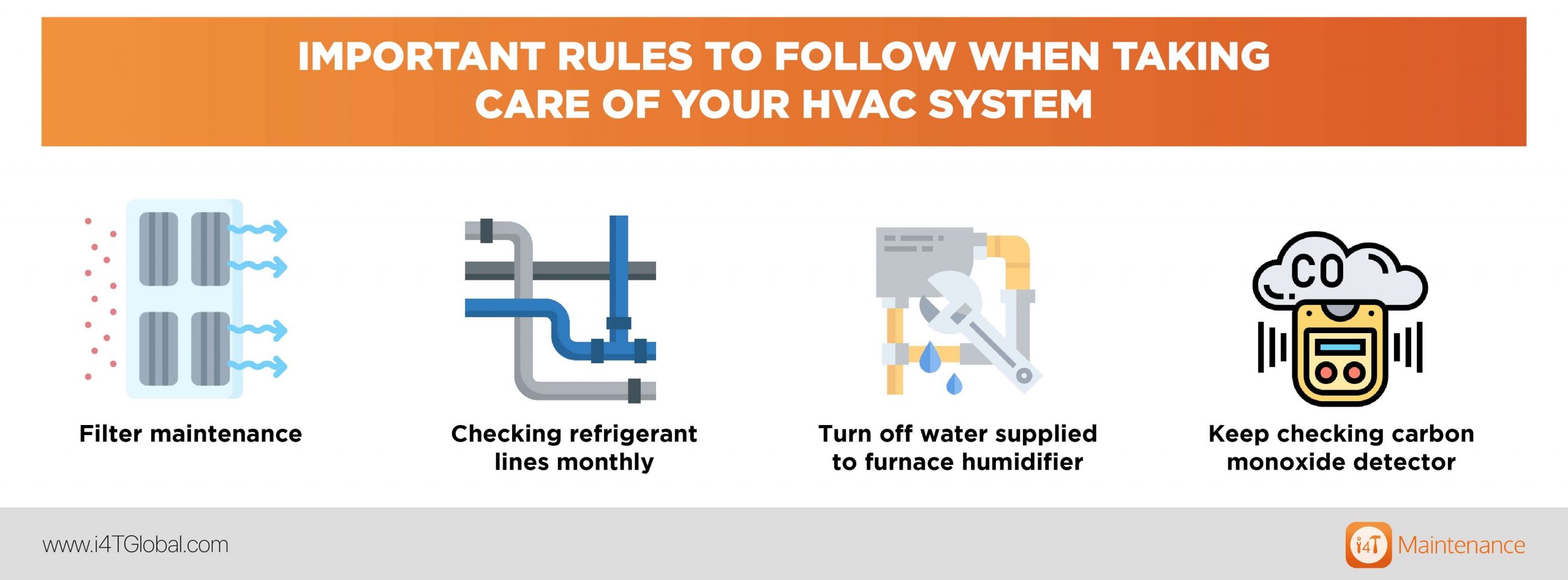
Optimizing Comfort: HVAC System Maintenance Essentials
Ensuring the longevity and efficiency of your HVAC (Heating, Ventilation, and Air Conditioning) system requires regular maintenance. Explore the essential aspects of HVAC system maintenance to keep your home comfortable and energy-efficient throughout the seasons.
**1. Scheduled Filter Replacements: Uninterrupted Airflow
The air filter in your HVAC system plays a crucial role in maintaining indoor air quality. Regularly check and replace the air filter according to the manufacturer’s recommendations. Clean filters ensure uninterrupted airflow, improve system efficiency, and contribute to better indoor air quality.
**2. Thermostat Calibration: Precise Temperature Control
Calibrating your thermostat is essential for accurate temperature control. Ensure that the thermostat is level and free from dust or debris. If you have a programmable thermostat, update the settings seasonally to optimize energy usage. A well-calibrated thermostat enhances comfort and minimizes energy wastage.
**3. Ductwork Inspection: Sealing and Insulating
Inspecting and maintaining your ductwork is crucial for efficient HVAC performance. Seal any visible leaks with duct tape or mastic sealant to prevent air loss. Additionally, consider insulating ducts in unconditioned spaces to minimize heat transfer and enhance overall system efficiency.
**4. Condenser and Evaporator Coil Cleaning: Efficient Heat Exchange
Outdoor condenser coils and indoor evaporator coils accumulate dirt over time, hindering the heat exchange process. Regularly clean these coils to ensure optimal system efficiency. Use a soft brush or compressed air to remove debris and maintain efficient heat transfer.
**5. Refrigerant Level Check: Preserving Cooling Capacity
Maintaining the correct refrigerant level is essential for preserving your HVAC system’s cooling capacity. If you notice a decrease in cooling performance, consult a professional technician to check and recharge the refrigerant. Proper refrigerant levels contribute to consistent and efficient cooling.
**6. Inspect and Clean Blower Components: Enhanced Airflow
The blower components, including the blower motor and fan, play a crucial role in distributing conditioned air. Regularly inspect and clean these components to ensure proper airflow. A clean blower motor operates more efficiently, enhancing the overall performance of your HVAC system.
**7. Inspect Gas Connections: Safety First
For homes with gas-powered HVAC systems, inspecting gas connections is a safety imperative. Check for leaks in the gas lines and ensure that all connections are secure. If you detect any issues, contact a licensed professional to address gas-related concerns promptly.
**8. Check and Tighten Electrical Connections: Preventing Failures
Loose electrical connections can lead to system failures and increased energy consumption. Periodically check and tighten all electrical connections within your HVAC system. This preventive measure not only enhances system reliability but also reduces the risk of electrical issues.
**9. Evaluate System Performance: Professional Tune-Up
While there are several maintenance tasks homeowners can perform, it’s crucial to schedule professional HVAC system tune-ups. A qualified technician can conduct a comprehensive inspection, identify potential issues, and optimize the system for peak performance.
**10. Consider Smart HVAC Controls: Energy-Efficient Management
Upgrade your HVAC system with smart controls for advanced energy management. Smart thermostats and control systems allow you to monitor and adjust your home’s temperature remotely, optimizing energy usage. Explore the benefits of integrating smart technology for enhanced HVAC system efficiency.
For a more detailed guide on HVAC system maintenance and expert insights, visit HVAC System Maintenance. Explore additional resources, tips, and professional advice to keep your HVAC system running smoothly and efficiently throughout the year.



